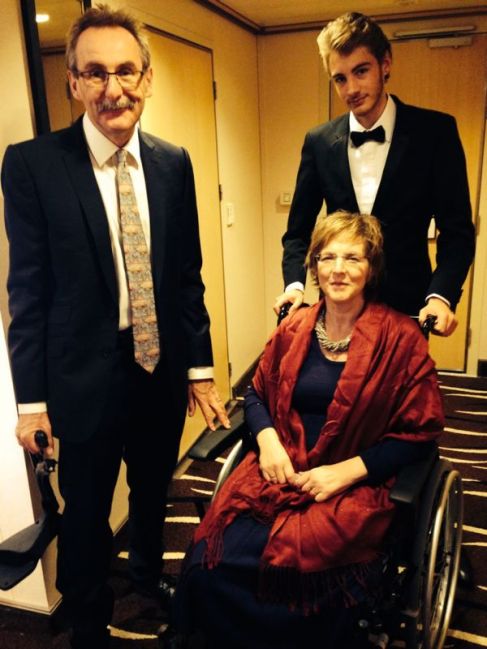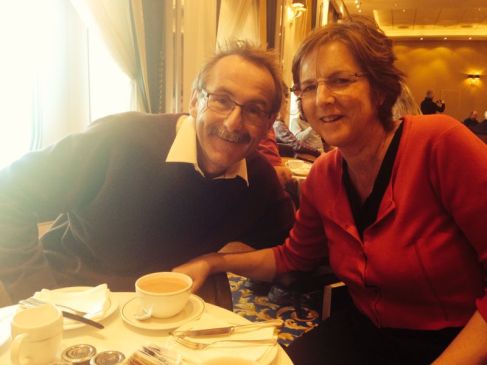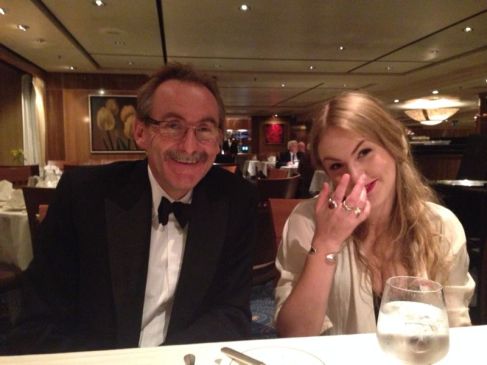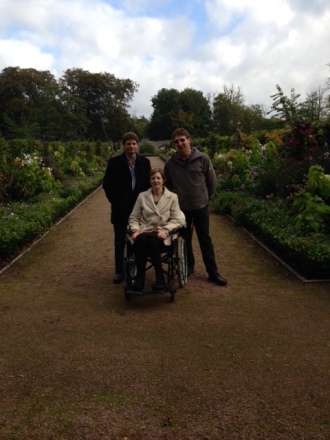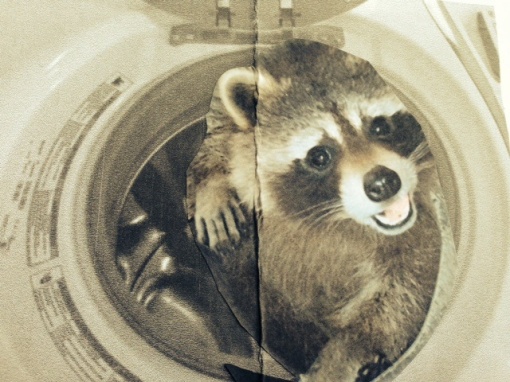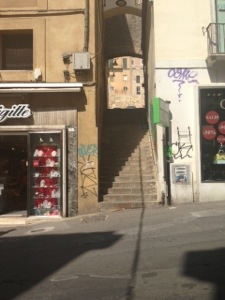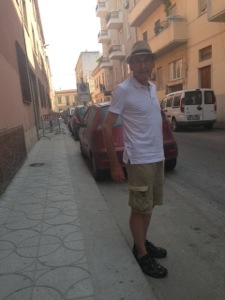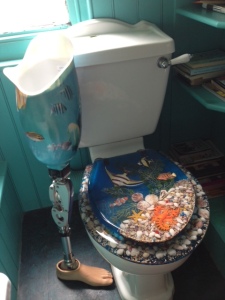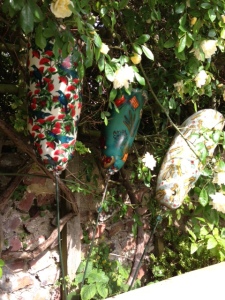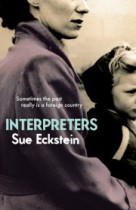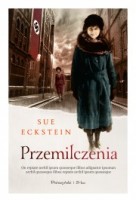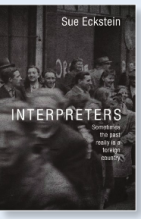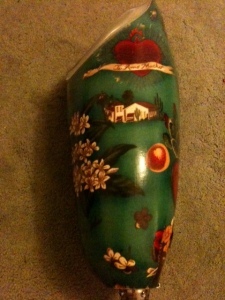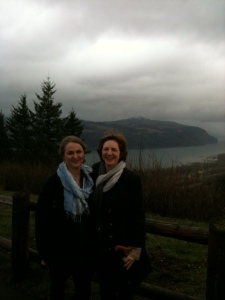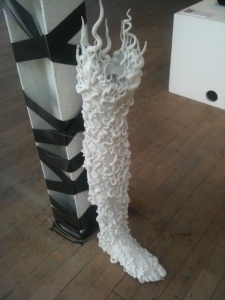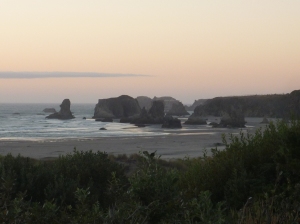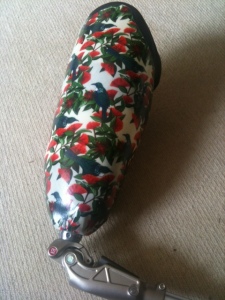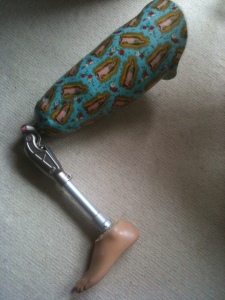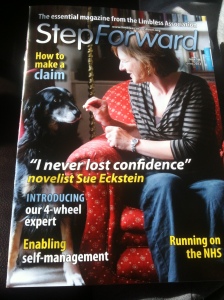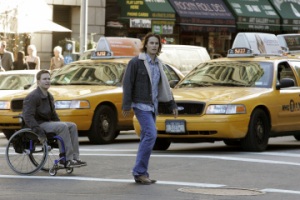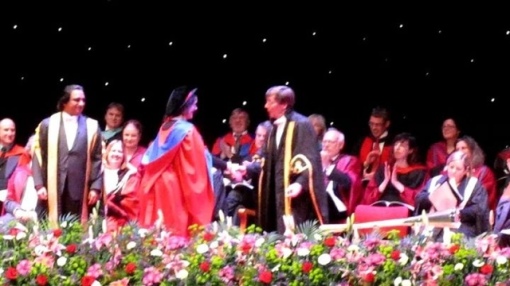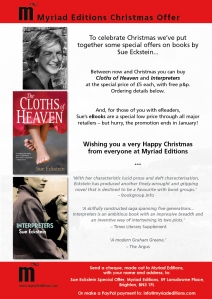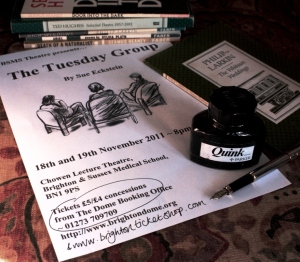Sue wrote this talk to give to the girls of Bromley High School in June 2013, when she was invited to their graduation as guest speaker. Better than anything else it gives an outline of her career and part outline of her wider life and her words are far better than anyone else’s on this subject. Alastair
How way leads on to way
GDST roots
I am delighted to be here as a GDST old girl having spent the years 5-18 at Bromley High School.
I remember at the stage you are that Edna Healy (wife of Dennis Healy – Labour Chancellor of the Exchequer) came to prize giving and gave a talk that I’ve always remembered. In it she said that we should not expect life to be straightforward and that there would be things to factor in like looking after elderly parents. At the time I was rather bemused by this as we really felt we had the world at our fingertips and there was nothing that we couldn’t do and no one was going to stop us, but as I have gone through life it has made more sense. I think that what she was talking about was the unpredictability of life and the need to adapt ones plans and ones aspirations.
Some of you may have a very clear idea of who and what you want to be, and exactly what path you’ll have to take in order to achieve that. Others won’t have a clue. But I’d like to suggest that even those who think they know exactly what path they are on, may well have to take a very roundabout route to get to the destination they think they want to get to. Also some of you will find that that destination is actually not a destination, but just a stop on the way, somewhere quite different, but equally interesting.
Some of you may know the Robert Frost poem – The Road Not Taken. In it he talks about “How way leads on to way.” What I’m going to do today is use myself as a case study and talk to you about the very roundabout route I took to several of the key destinations I reached. Destinations I didn’t even know I wanted to reach until I got there.
I don’t think I could have planned out my life and career or predicted half the things I have done, though, looking back, the ways that led on to other ways have had a kind of strange logic.
Medicine
I came from 4 generations of doctors and surgeons and remember at some point in my childhood when not wanting to be a vet, own a kennel, or marry Donny Osmond that I might like to do that too. The fact that I had absolutely no aptitude for science and managed in my very academic school to get a U for maths O level soon put paid to that.
English Literature and Drama
My great love at school was for English and –outside school– was for drama. I applied to study English Literature at Durham but then, on a whim, decided to have a gap year and I applied for an English Speaking Union scholarship to the USA and, because of my interest in drama, was sent to a school of performing arts just outside Boston. This had a down side as it was full of dancers with issues about food and being at boarding school was restrictive but it did have two really good things about it, doing drama and suddenly being seen as incredibly academic!
Working abroad
At Durham I did a lot of drama and in many ways would have loved to have gone on with that and done something in the theatre but I was drawn to living and working abroad and doing some kind of voluntary work. I was not sure where that came from though both my parents were immigrants and both had “socially useful” jobs. I had been born in Turkey because my father was invited back to work in the children’s hospital that his own father had set up after having fled from Nazi Germany in 1936. My own planning was a bit haphazard. A friend’s brother had worked for a Buddhist organisation in Sri Lanka in his gap year so I did a TEFL course and just went there. When I arrived I discovered that I needed a visa and more money. One day I passed a language school which had just opened and ended up working there for a year.
After that year I wanted to stay and the Colombo International School wanted a pantomime so I got a job and they got my version of Cinderella (I was the wicked stepmother), Aladdin and Dick Whittington. For the rest of the time I involved myself with the women’s movement and got to know people in the aid and development business. I wrote for Voice of Women and did some editing. This led me, on return, to do an MA in Women’s Studies at Kent University one day a week. I never finished it but I made, as I have in all parts of my life, some lifelong friends.
VSO
Also on return to England I wrote to an NGO, ITDG, and was asked to come in and see them. They gave me a voluntary job as editorial assistant on a book and, after a year, they found me bits of paid work. During this I went on a CND march and someone mentioned they’d heard a job at VSO coming up as technical development officer. I persuaded them that I had enough experience from Sri Lanka to recruit technical volunteers, such as plumbers and electricians, and train them to go and work overseas. This gave me the opportunity for trips to various countries including Indonesia, Nigeria, Bangladesh and Nepal.
After 3 years I applied for a temporary post in Bhutan for 3 months where I had to have the ability to hit the floor running being left in Calcutta with the instructions drive until you see the Coca Cola sign, turn left and leave India. On return I applied to work more permanently overseas and was, for three and a half years the VSO Programme Manager in The Gambia even though I hadn’t known where it was on the map. I arrived 2 weeks before a new batch of volunteers and had to be ready to receive and train them before posting them to various locations in a country which I did not yet know. It was a wonderful job in which I could spend the day with subsistence farmers and the evening at some British High Commission event. During this time I picked up a husband, who came to join me for my final six months.
Overseas Training Programme
When I came back to England again part of the resettlement package was a few months work and I was asked to do research for a new programme to send university undergraduates out to be trainees on development projects. I presented this a week before my daughter was born. I then went on maternity leave with no plans but was offered opportunity to set the scheme and to do this, part time, from home in Brighton. I did a 4 day week in 3 and my husband a 5 day week in 4 and we muddled along balancing childcare. As the scheme grew, and so did my daughter who no longer wanted to share her bedroom with the desk and filing cabinet, I found an office down the road. I did this for 7 years and loved working with young people in their early twenties.
During this time I had my second child, a son.
Bad choice
40 seemed a time to make a change after 14 years with VSO so I just stopped work with nothing set up to go to. It was at this point that I made my one bad career choice and worked for a charity recruitment business the only benefit of which was realising that if one doesn’t enjoy going to work it really is not worth going to. I resigned.
Medical Ethics
I heard of a job in the law school at King’s College London in the Centre of Medical Law and Ethics. They wanted someone to organise training in research ethics and edit a text book. There were 2 weeks before the interview and I had never heard of research ethics but it is remarkable what one can learn in a short time. I worked there for 7 years and sat in on all the training that I organised. This gave me enough knowledge and confidence to apply for a job as a lecturer in Clinical and Biomedical Ethics at Brighton and Sussex Medical School. I have been there for nearly 6 years.
Writing
At the time I left VSO , having always thought I wanted to write, I did a creative writing course and loved it. This was followed by a post graduate diploma in dramatic writing and an MA in creative writing. While on the course I decided to see if I could write enough words to make a novel. I wrote an opening chapter for an assignment and then just carried on. The novel is based in a country not unlike The Gambia and some of it is based on my time there. I didn’t think of publishing it.
Play writing
While at King’s a colleague commissioned a play based on reports of a user group in a hospice. This was performed by a high profile cast including Gina McKee , Phyllida Law and Amanda Mealing of Holby City. One of the actors asked if I’d consider doing it for radio and had a contact at BBC Scotland, Bruce Young. He gave excellent advice about turning it into radio but it didn’t get commissioned. He asked if I had anything else in a drawer and I actually did – Kaffir Lilies based in Colonial Nigeria. I improved this with his advice and it got through the commissioning round and was performed on Radio 4. That first recording was the nearest I’ve come to heaven. It was followed by Laura and Old School Ties.
Novel
My novel continued to languish in a desk drawer but then I met the boss of an independent publisher at a birthday party and she asked to see it as she was looking for fiction to publish. It was published in April 2009 with a book launch at the medical school. I derived huge pleasure from this and it included doing talks, going to book groups and judging writing competitions. The editor and publisher were both GDST girls!
I gave a copy to my radio producer and he suggested adapting it for the Woman’s Hour drama. I did this and it was broadcast in March 2010.
I then went on to write a second novel, Interpreters, and it was published in September 2011.
DPhil
This second novel formed an important part of a part-time PhD in creative writing which I finished in late 2011 and was awarded in early 2012 making me end up as the doctor I once thought I’d wanted to be.
Complications
No one’s life is straightforward. I had had years of problems with my left foot starting with an operation in 1986 and several more in 1993 and from 2005. During the recording of Cloths of Heaven a bone scan showed a tumour higher up the leg and, at the same time, my husband was sacked.
In April 2010 I had the leg amputated below the knee. This was not great but at least Alastair was at home. The tumour was found to have recurred in 2011 and in June of that year I had an above-knee amputation.
I had never known what a blog was before this point but I started writing one and ended up with quite a following. I was also commissioned to write a piece for The Guardian. Sales of my books went up a bit and then there was a new commission on health blogs.
I have almost come full circle. I use love of literature and story telling in my teaching of ethics. I also use film, poetry and literature in modules on mental health in Bedlam and Beyond and heart, lungs and blood in Bleeding Hearts and Fevered Lungs.
So I wish you all the very best on your paths through life- I urge you to be creative, take career risks, not be afraid to do things that you are not sure you can do. Above all, do whatever you can to earn your living doing so
